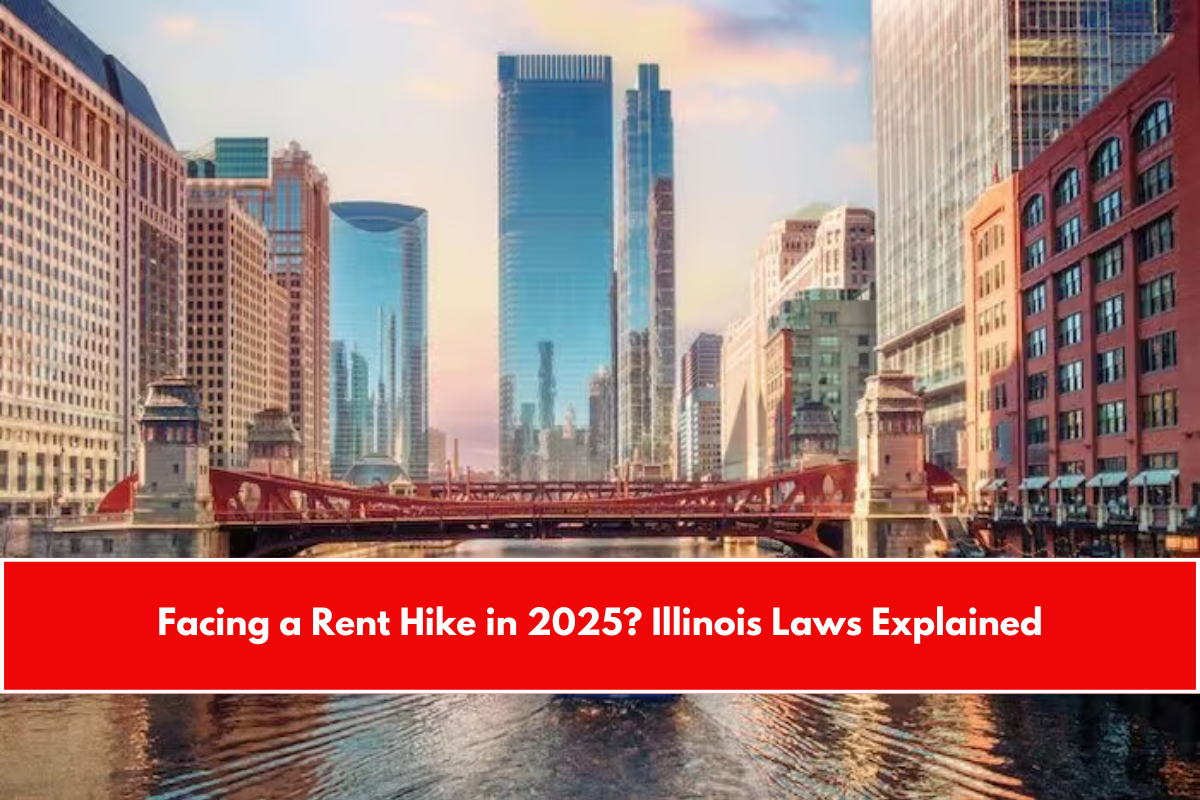If you’re renting a house or apartment in Illinois or planning to lease out a property, it’s important to understand how rent control works—or doesn’t—in the state. In 2025, there are no statewide rent control laws in Illinois, but many tenants and landlords still have questions about what is legal and what is not when it comes to rent increases.
This article will explain everything clearly—from how rent control works, to current laws, tenant rights, landlord responsibilities, and what might change in the future.
What Is Rent Control?
Rent control is a set of laws that limits how much and how often a landlord can increase the rent. The main goal is to keep housing affordable, especially for middle- and low-income tenants. It also helps prevent sudden rent hikes that could force people to leave their homes.
These laws usually cap rent increases at a certain percentage—often based on inflation—and aim to protect tenants from being priced out of their neighbourhoods. But not everyone agrees with rent control. Some people say it discourages landlords from maintaining their properties or building new rental homes.
History of Rent Control in Illinois
Rent control is not new in Illinois. After World War II, cities like Chicago had temporary rent controls from 1942 to 1947 due to a housing crisis. But once the crisis ended, the rules expired.
In the 1980s and 90s, some towns tried to bring rent control back, but the Illinois state government passed a law in 1997 called the Rent Control Preemption Act. This law bans any local government in Illinois from making their own rent control rules. Only the state can create rent control laws, and so far, it hasn’t done so.
Current Rent Control Laws in Illinois (As of 2025)
As of 2025, there are no state or local rent control laws in Illinois. This means:
- Landlords can increase rent by any amount they want, as long as they follow notice rules.
- No cap exists on the percentage of rent increase.
- Landlords don’t need to explain or justify the increase.
This gives landlords a lot of freedom. However, there are rules about how often they can raise rent and how much notice they must give.
Rent Increase Rules in Illinois
Here’s what Illinois law says about when and how rent can be increased:
Frequency of Rent Increases:
- Month-to-Month Leases: Rent can be raised only once per year.
- Fixed-Term Leases (6 months, 1 year): Rent cannot be raised during the lease unless the agreement allows it.
Notice Requirements:
- Month-to-Month Lease: 30 days’ written notice.
- Lease less than 1 year: 30 days’ notice.
- Lease of 1 year or more: 60 days’ written notice.
If a landlord doesn’t give proper notice, the increase is not valid.
Rent Increases During a Lease
Rent cannot be increased during an active lease unless both tenant and landlord agree in writing. If your lease doesn’t mention rent increases during the term, the landlord must wait until the lease ends. If they try to raise the rent mid-lease without your agreement, it is not enforceable.
Can Cities Like Chicago Set Their Own Rent Control?
No. Under the 1997 Rent Control Preemption Act, cities like Chicago, Springfield, or Rockford cannot create their own rent control policies. Even if a city wants to help renters by controlling rising housing costs, they are blocked by state law.
Only the state legislature in Springfield can pass rent control laws, and as of March 2025, they haven’t.
The Tenant Protection Act: Proposed Rent Control Law
In 2021, a new bill called the Tenant Protection Act was introduced. It has not yet passed, but it proposes the following:
- Limit rent increases to 5% per year
- Allow only one rent hike per year
- Require 180 days’ notice for rent increases above 5%
- Ban rent increases in the first year of a lease
If passed, this bill would overturn the 1997 law and allow cities to set up local rent control ordinances.
So far, the law has not been approved, but many renters and tenant rights groups continue to push for it.
Tenant Protections in Illinois
Even without rent control, Illinois renters have certain rights:
Retaliation is Illegal
Landlords cannot raise rent, cut services, or evict you just because you:
- Filed a complaint with housing authorities
- Joined a tenant union
- Reported unsafe living conditions
If any of this happens within 6 months of your action, you can take legal action.
Unlawful Evictions
Landlords cannot evict you without a court order. They cannot lock you out, shut off utilities, or remove doors/windows. This is illegal, and tenants can sue for damages and regain access.
Habitability Rules
Landlords must provide safe, livable homes with:
- Working plumbing, heating, and electricity
- No pest infestations
- No mold or severe water damage
If a landlord fails to fix these problems, tenants can withhold rent or even end the lease, after proper notice.
Landlord Responsibilities
Landlords in Illinois must:
- Keep the rental unit in good condition
- Respond to repair requests
- Avoid harassment or illegal eviction methods
- Follow lease terms and rent increase notice rules
Landlords who break these rules may face legal action from tenants.
In 2025, Illinois does not have rent control, giving landlords the power to set and raise rent freely. However, laws do protect tenants from sudden or unfair rent hikes by requiring proper notice and preventing retaliation or unlawful eviction. The Tenant Protection Act, if passed, could change the situation completely and bring new protections.
Until then, tenants should read their lease carefully, stay informed, and know their rights. If in doubt, they should contact a tenant rights group or legal aid service for support. Renters and landlords alike should follow the law to keep housing fair and safe for everyone.
FAQ Section:
Does Illinois have rent control in 2025?
No, Illinois still does not have statewide or local rent control laws. Landlords can raise rent without any set limits.
Can my landlord raise rent during my lease?
No, rent cannot be increased during a lease unless the lease says it can or the tenant agrees in writing.
How much notice is needed before a rent increase?
30 days for month-to-month or short leases, and 60 days for leases of 1 year or more.
What is the Tenant Protection Act?
It’s a proposed law that would limit rent increases and allow local rent control. It has not yet passed.
What can I do if my landlord increases rent unfairly?
Check if proper notice was given. If not, the increase may be invalid. Contact a tenant lawyer or legal aid for help.


















Leave a Reply